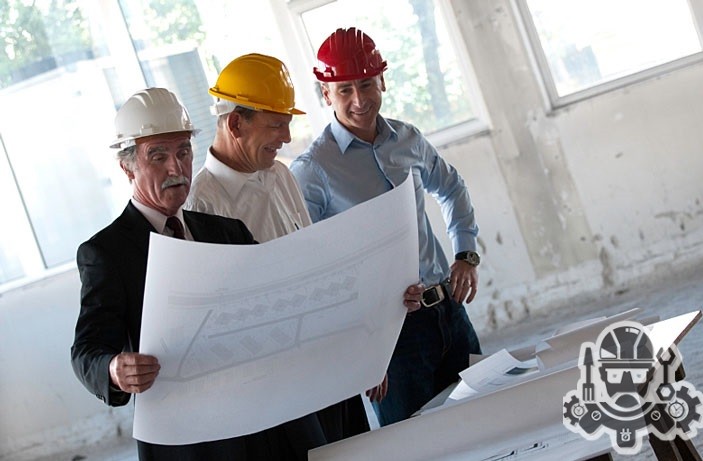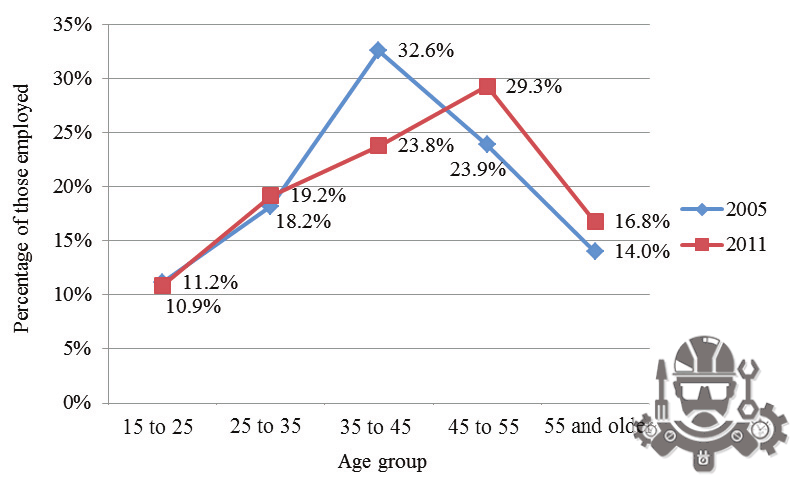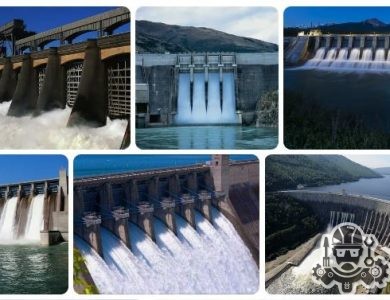Engineers Getting Older

Engineering is a field that has played a crucial role in shaping our modern world. From the construction of towering skyscrapers to the development of cutting-edge technologies, engineers have been at the forefront of innovation. However, there is a concerning trend within the engineering community – engineers are getting older.
The aging of engineers can have significant implications for the field as a whole. As experienced engineers retire, the industry is faced with a shortage of skilled professionals to fill their shoes. This can result in delays in projects, decreased productivity, and the potential for a decline in quality standards.
There are several factors contributing to the aging of engineers. Firstly, the average lifespan has increased significantly over the years. This means that engineers are choosing to work longer before retiring. Additionally, the number of engineering graduates entering the workforce has not kept up with the demand for engineers. This has led to a situation where there are not enough younger engineers to replace those who are retiring.
The aging of engineers also raises concerns about the loss of valuable knowledge and expertise. Years of experience in the field provide engineers with invaluable insights and problem-solving abilities. Losing this accumulated wisdom can be detrimental to the progress of engineering projects. To address this issue, it is important for experienced engineers to actively mentor and pass on their knowledge to the younger generation.
Furthermore, the physical demands of engineering work can become more challenging as engineers age. Fieldwork, long hours, and physically demanding tasks can take a toll on the body over time. Employers need to take this into consideration and provide support systems to help older engineers cope with the demands of their work.
One potential solution to the aging engineer problem is to encourage younger individuals to pursue careers in engineering. This can be achieved through educational campaigns and outreach programs aimed at increasing interest in the field among students. By attracting more young people to engineering, the industry can ensure a constant influx of new talent to offset the retiring workforce.
Another approach is to promote continuous professional development and lifelong learning for engineers. By investing in training programs and opportunities for skill enhancement, engineers can stay relevant and up-to-date with the latest advancements in technology and engineering practices. This can help mitigate the impact of the aging workforce on the industry.

In conclusion, the aging of engineers poses significant challenges for the field of engineering. The shortage of skilled professionals, the loss of expertise, and the physical limitations of older engineers all need to be addressed in order to maintain the vitality of the field. Through initiatives to attract younger individuals to engineering and by investing in the ongoing education of engineers, the industry can overcome these challenges and continue to thrive.
Rising average age in engineering
The engineering field has seen a significant increase in the average age of professionals over the past decade. This trend poses several challenges and implications for the industry as a whole. Understanding the reasons behind this shift and its potential consequences is crucial for addressing the issues that arise from an aging workforce.
One of the main factors contributing to the rising average age in engineering is the lack of young talent entering the field. In recent years, there has been a decline in the number of students pursuing engineering degrees, resulting in a smaller pool of fresh graduates to replace retiring professionals. This shortage of new professionals is a cause for concern as experienced engineers leave the workforce without an adequate number of replacements.
Another reason for the increase in the average age of engineers is the tendency for professionals to continue working past retirement age. With advancements in healthcare and an increasing need for experienced engineers, many individuals choose to prolong their careers. This extension of working years leads to an overall older workforce, as professionals are staying in the field for longer periods.
It is essential to address the challenges that come with an aging engineering workforce. One of the primary concerns is the potential knowledge gap that may arise as experienced professionals retire. The accumulated expertise and experience of these engineers are valuable assets to the industry, and losing them without proper knowledge transfer could hinder progress and innovation. Companies and organizations must develop strategies to capture and transfer this knowledge to younger generations.
Furthermore, an aging workforce may also face physical limitations that could impact productivity and performance. As individuals grow older, they may experience a decline in physical capabilities, including reduced stamina and dexterity. These limitations can affect an engineer’s ability to perform certain tasks, particularly those that require manual labor or prolonged periods of physical exertion. Companies must consider these limitations and make appropriate accommodations to ensure that aging professionals can continue to contribute effectively to projects.
The increasing average age in engineering also raises concerns about diversity and inclusivity. With a predominantly older workforce, there may be limited opportunities for younger professionals and individuals from underrepresented groups to enter the field. This lack of diversity can hinder innovation and limit the perspectives and ideas brought to the engineering industry. Addressing these disparities and implementing programs to attract and retain a diverse workforce is essential for the future success of the field.
In conclusion, the rising average age in engineering is a significant trend that carries implications and challenges for the industry. Understanding the factors contributing to this shift, such as the lack of young talent and professionals working past retirement age, is crucial for developing strategies to address these issues. It is essential to capture and transfer the knowledge of experienced engineers, accommodate physical limitations, and promote diversity and inclusivity in the engineering field. By tackling these challenges head-on, the industry can ensure a vibrant and sustainable future for engineering.
Ageing engineers
Ageing engineers bring a wealth of knowledge and experience to their respective fields. They have spent years developing skills, gaining technical expertise, and solving complex problems. Their expertise is often crucial in ensuring the smooth operation of industries such as manufacturing, construction, and infrastructure development. However, as engineers age, they may face certain challenges that can affect their performance.

One of the main challenges faced by ageing engineers is the decline in cognitive abilities. Research has shown that as individuals age, their processing speed, memory, and problem-solving skills tend to decline. This can impact an engineer’s ability to effectively analyze complex situations and make informed decisions. Furthermore, the physical demands of certain engineering jobs can become increasingly challenging as engineers age, leading to a decrease in productivity.
To address these challenges, companies can implement strategies to support ageing engineers and ensure a smooth transition as they approach retirement. One approach is to provide training programs and continuing education opportunities. By updating their technical skills and knowledge, ageing engineers can stay relevant in their fields and adapt to emerging technologies.
Another strategy is to encourage mentoring programs within the company. Pairing older engineers with younger professionals allows for the transfer of knowledge and experience. This not only benefits the younger engineers by providing them with valuable insights but also allows the ageing engineers to take on a new role as mentors, thus contributing to the growth and development of the workforce as a whole.
Furthermore, companies can also consider implementing flexible work arrangements for ageing engineers. This can include reduced working hours, job sharing, or the option to work remotely. Such arrangements can help mitigate the physical challenges faced by ageing engineers and enable them to continue contributing to their respective fields in a way that suits their capabilities.
While the ageing engineer issue poses challenges, it also presents opportunities for innovation and development within industries. Companies can invest in research and development to design technology and tools that assist engineers in their work. This can encompass AI-driven solutions, automation, and advanced software that enhance productivity and decision-making capabilities.
Implementing such technologies not only benefits ageing engineers but also creates a more efficient and effective workforce overall. It can free up time for engineers to focus on more critical tasks that require their expertise while allowing for increased collaboration and knowledge sharing among team members.
| Challenges: | Strategies: |
| – Decline in cognitive abilities – Physical challenges |
– Training and education programs – Mentoring initiatives – Flexible work arrangements |
In conclusion, the issue of ageing engineers requires careful consideration and proactive measures from companies. By implementing strategies to support ageing engineers, such as training programs, mentoring initiatives, and flexible work arrangements, companies can harness their knowledge and experience while ensuring a smooth transition towards retirement. Additionally, investing in technology and innovation can contribute to the overall efficiency and effectiveness of the workforce. Ultimately, addressing the issue of ageing engineers is vital for the sustainable growth and development of industries.
Increasing average engineer age

Engineering is a rapidly evolving field that plays a critical role in technological advancements and innovation. The average age of engineers, however, has been steadily increasing over the years. This trend raises important questions about the future of engineering and the potential implications it may have on various industries and society as a whole.
One possible explanation for the increasing average age of engineers is the lack of young individuals pursuing careers in engineering. The field has become less attractive to recent graduates, potentially due to the demanding nature of the work, significant educational requirements, and the perception of limited job prospects. As a result, there is a growing gap between the number of experienced engineers approaching retirement and the number of young engineers entering the workforce.
This phenomenon can have significant consequences on industries heavily reliant on engineering expertise. As experienced engineers retire, their vast knowledge and skills may be lost, creating a knowledge gap that could hinder the development of new technologies. Furthermore, a workforce with a higher average age may lack the fresh perspectives and innovative thinking that young engineers bring to the table.
The increasing average age of engineers also raises concerns about succession planning and workforce sustainability. Organizations must prioritize developing strategies to attract and retain young engineering talent in order to ensure a smooth transition of knowledge from one generation to the next. This may involve offering incentives for young engineers to join the workforce, such as mentoring programs, networking opportunities, and competitive salaries.
Moreover, the aging engineering workforce may face challenges in adapting to rapidly changing technologies. The field of engineering is constantly evolving, and staying up to date with the latest advancements is crucial. Younger engineers may have an advantage in this regard, as they are more likely to be familiar with emerging technologies and have the flexibility to adapt to new methodologies and tools.
Another factor contributing to the increasing average age of engineers is the trend towards delaying retirement. Many engineers are choosing to work longer due to financial considerations, the desire to stay active and engaged, and the inherent satisfaction derived from their work. While this may have positive implications for individuals, it further exacerbates the issue of an aging workforce.
Solutions to address the increasing average age of engineers must involve a multi-faceted approach. Educational institutions must work to make engineering a more appealing career choice for young individuals by highlighting the diverse range of opportunities available and debunking common misconceptions about the field. Industry leaders can also play a role by implementing flexible work arrangements and providing opportunities for continuing education and professional development.
In conclusion, the increasing average age of engineers poses significant challenges for the field of engineering and the industries it serves. It is crucial to address this issue by attracting and retaining young engineering talent, promoting knowledge transfer, and adapting to evolving technologies. Failure to do so may hinder progress and innovation, ultimately impacting our society’s ability to solve complex problems and confront future challenges.



